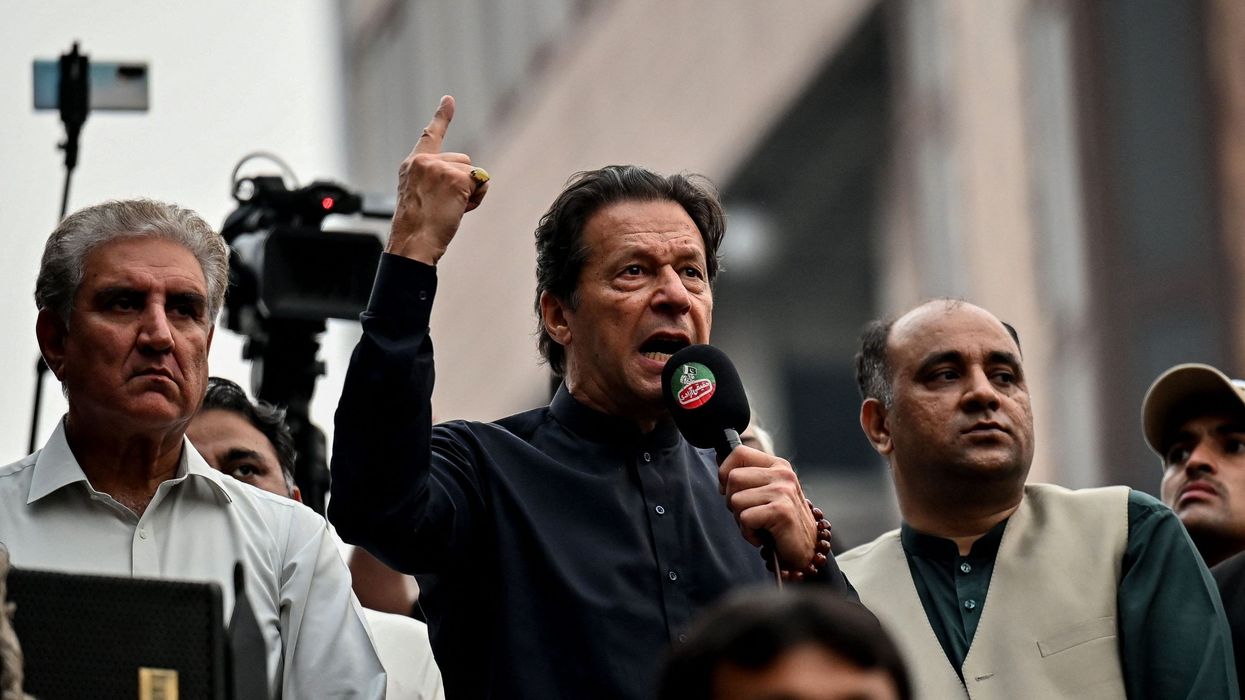Imran Khan alleges that General Qamar Javed Bajwa, the former Army chief, had urged him to establish cordial relations with India. The relationship between the two countries has been fraught with tension over the Kashmir issue and cross-border terrorism from Pakistan.
However, their relationship took a nosedive after India repealed Article 370 of the Constitution on August 5, 2019, stripping Jammu and Kashmir of its special status and dividing the state into two union territories.
"Gen Bajwa wanted me to develop friendly ties with India. He put pressure on me for this and it was one of the reasons our relationship deteriorated," Khan claimed during an interaction with social media journalists at his Lahore's Zaman Park residence on Saturday evening.
Despite his claim, Khan maintained his stance that Pakistan should only engage in peace talks with India if the latter reinstates the special status of Jammu and Kashmir.
India has consistently expressed its desire for normal relations with Pakistan without terrorism, aggression, or violence.
Additionally, the 70-year-old Pakistan Tehreek-e-Insaf (PTI) chairman asserted that the actions taken by Bajwa were even more harmful to Pakistan than those of an enemy.
"Bajwa should be held accountable by the army," he said.
In the past, Khan has accused Bajwa of not only overthrowing his country and laying the foundation for economic disaster, but also committing atrocities against him, his party members, and journalists. Khan has alleged that Bajwa even wanted him killed.
Khan and Bajwa have been in conflict since Khan was removed from power through a no-confidence motion in April 2021. Bajwa retired on November 29, 2021, after serving two consecutive three-year terms as Army Chief.
Khan commented on the PML-N led federal government's refusal to accept the verdict of a three-member bench of Supreme Court led by Chief Justice Umar Ata Bandial regarding elections in two provinces.
He accused the government of attempting to delay the elections in Punjab and Kyber Pakhtunkhwa provinces in order to weaken the PTI and himself. He claimed that this was a ploy by a group of corrupt individuals to finish off his political career.
Khan demanded an explanation from the ruling alliance for delaying the elections until October 2023. He warned that if elections are not held within 90 days in two provinces, Pakistan would be left without a constitution.
In January, Khan's party dissolved assemblies in Punjab and Khyber Pakhtunkhwa provinces, and a caretaker setup took over.
The constitution mandates that elections be held within 90 days of assembly dissolution. Khan emphasised that Pakistan is facing a critical moment and called on the nation to stand by the Constitution and rule of law.
(With inputs from PTI)




